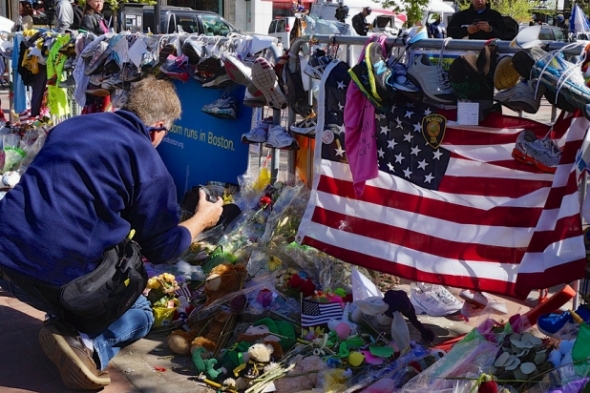Having marked another grim anniversary of 9/11, many companies have either bought insurance against terrorist acts or are considering doing so. But the issues related to coverage are more complicated than people realize.
Just because acts meet the common-sense definition of terrorism and are generally referred to as terrorist acts doesn’t mean they’ll be treated that way under a federal program known as TRIPRA, which is generally seen as terrorism insurance. To meet the standards under TRIPRA, the acts have to be officially certified as terrorist acts by the Secretary of the Treasury, in conjunction with the Secretary of State and the Attorney General. (TRIPRA stands for Terrorism Risk Insurance Program Reauthorization Act; it is the 2007 continuance of a program initially instituted in 2002 and known then as TRIA, for Terrorism Risk Insurance Act.)
The designation is important because a business damaged in what is officially certified as an act of terrorism can only collect on a claim if it has purchased terrorism insurance under TRIPRA, which is a reinsurance program designed to pool the risks from terrorism.
Reports following the bombings at the finish of the Boston Marathon in April say that few of the stores that were damaged carried terrorism insurance. Many of these claims are now in limbo because the bombings have not been certified as terrorist acts, but President Obama did use that term in a speech. His pronouncement will be part of the process that insurance adjusters will use to accept or deny coverage requests by the injured parties under various parties’ liability insurance as well as the physical damage and business interruption claims filed by the businesses that were affected by the bombing but that didn’t carry terrorism insurance. (According to an article in Insurance Journal, 207 property/casualty claims were filed related to the Boston bombings; 84 have been settled for a total of $1.2 million, and 76 have been closed without a payment.)
Where does this leave the agent and broker trying to take care of a client? As is human nature, all of us in the US have become rather complacent about the prospects for acts of terrorism, and many clients may discount their exposure to this type of event. Well, as a producer, your job is to identify risk and offer solutions.
Offering TRIA/TRIPRA coverage on a “sign here” basis is not good enough. You should also investigate stand-alone terrorism coverage. There are a number of markets that offer this coverage. You need to offer both types of risk transfer in writing – get a quotation for the stand-alone coverage for property and casualty losses. The marketplace provides more options for property risk than the casualty risk in stand-alone terrorism coverage, but it is still available for both areas.
Quite recently, several respected organizations and publishers within the insurance industry have put out very well-written articles providing information regarding TRIPRA and the terrorism marketplace, in general.
The first is an Insurance Journal article that outlines the issues and concerns surrounding the congressional debate that will need to take place within the next year, as the TRIPRA legislation expires at the end of 2014: Demand, Rates for Terrorism Insurance Coverage Remain Steady: Marsh.
Next is an article written by the Insurance Information Institute that provides an overview of terrorism issues and concerns and also speaks to the current legislation and reauthorization efforts: Terrorism Risk and Insurance.
Last is the 2013 Terrorism Risk Insurance Report researched and written by Marsh USA: 2013 Terrorism Risk Insurance Report (registration required).
To help you navigate the issues (and to demonstrate their complexity), here is a summary of how insurance for terrorist acts is handled:
-
If the insured purchased Commercial Property Coverage on a Special Form basis and Commercial General Liability Coverage, and the act is deemed a terrorist act, then:
- If the loss is not “Certified,” there will be no coverage response even if the insured accepted the “TRIA” offer.
- If the loss IS “Certified,” there will be no coverage response if the insured did not accept the “TRIA” offer.
- If the loss is “Certified,” and the insured accepted and paid for the “TRIA” offer, coverage should respond.
- Stand-alone terrorism coverage would respond, whether “Certified” or not.
-
If the loss is not deemed to be a terrorist act, then:
- Coverage should apply under the Property Coverage form as an act of vandalism, fire, explosion, etc.
- Coverage should apply under the Business Income and Extra Expense Coverage form for those that experience a covered direct physical loss.
- Coverage should apply under the Business Income and Extra Expense Coverage form under Civil Authority for the period that the City of Boston shut down access to the immediately surrounding area.
- If the Commercial Property / Business Income policy includes a manuscript endorsement, Ingress / Egress, then coverage should apply if there is a lack of access to or from the business.
- Coverage will not apply to the general economic downturn experienced by businesses in geographic proximity during the aftermath of this event.
- Coverage should apply under the General Liability policies for those entities that are sued as a result of the wrongful deaths and injuries that were sustained.
There are separate exclusions that apply to nuclear, biological, chemical and pollution-related events that could also remove coverage.
As you see, the issues are complicated and need to be considered carefully. Send me an email if you need more information.





